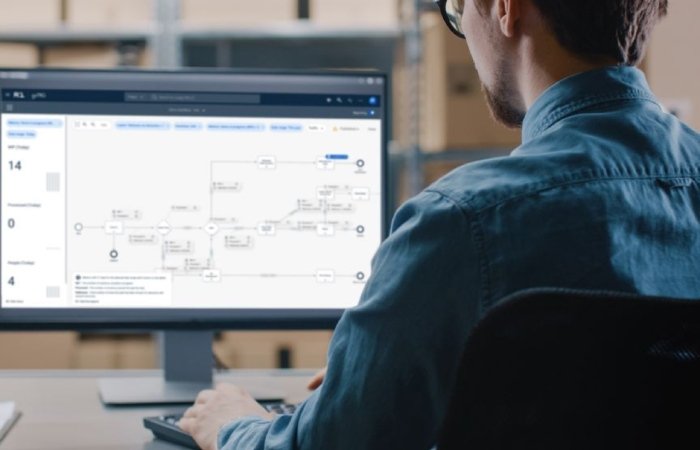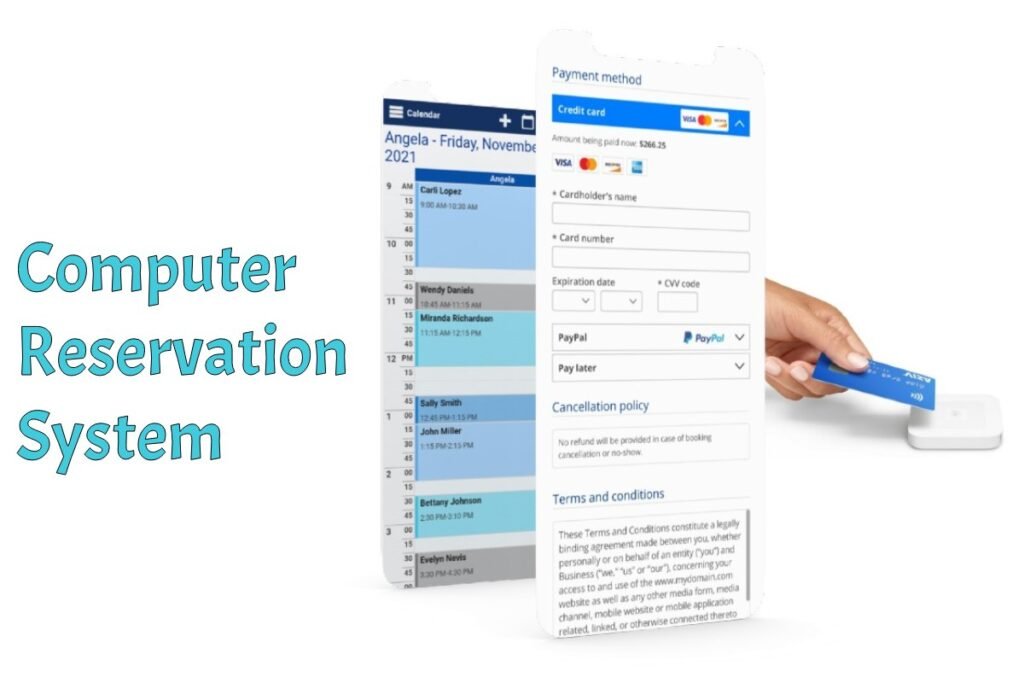Computer Reservation Systems are indispensable for modern hotels, providing a comprehensive solution for managing bookings, reducing costs, and optimizing pricing strategies. This powerful tool ensures better, faster, and more accurate booking management, positioning your hotel for greater success.
What is Computer Reservation Systems (CRS)?
A Computer Reservation Systems (CRS), also known as a central reservation system, is a sophisticated digital platform utilized to store, retrieve, and manage information and transactions related to travel services such as flights, hotels, and car rentals.
Initially developed by airlines, these systems expanded to travel agencies and global distribution systems (GDSs) to facilitate multi-airline ticket bookings.
Today, many airlines outsource their CRS operations to GDS companies, providing consumers with online access to book various travel services.
Modern GDSs also enable the booking of hotel rooms, car rentals, and activities. They offer railway and bus reservations in some regions, though these may not be fully integrated with the main system.
For the hotel industry, GDSs help manage reservations and prevent overbooking.
Airline reservation systems often form part of a larger passenger service system, which includes an airline inventory system and a departure control system.
Despite their advantages, centralized reservation systems are prone to network-wide disruptions.
Computer Reservation Systems (CRS) Functionalities
Airline CRSs are designed to bridge the gap between air carriers and passengers, eliminating physical and geographical barriers.
These systems integrate with airlines’ passenger processing systems and connect to various booking platforms, including airline websites, travel agencies (OTAs), and other third-party services.
Direct booking via an airline’s website, connected to the CRS, allows airlines to receive commission-free bookings and support multiple currencies and payment methods, enhancing user experience.
For bookings through third-party agents, GDSs and meta-search engines act as intermediaries.
History
MARS-1: The MARS-1, developed in the 1950s by Japan’s National Railways’ R&D Institute and produced by Hitachi in 1958, was the first seat reservation system for trains. It utilized a transistor computer and a magnetic drum memory to manage seat reservations and facilitate communication with terminals.
Remote Access: In 1953, Trans-Canada Airlines (TCA) explored a computer-based reservation system, leading to the development of ReserVec, which went live in 1962. American Airlines’ collaboration with IBM in 1959 resulted in SABRE, which became the largest civil data processing system by 1964. Other airlines developed similar systems, such as PANAMAC, DATAS, Apollo, and PARS.

Features of Airline Computer Reservation Systems (CRS)
- Reliable Distribution Tool: Distributes air travel information via web-based applications.
- Remote Booking: Allows users to book travel services online anytime.
- Integration: Interfaces with GDSs and APIs/XMLs.
- Information Recording: Records flight-related data, including Passenger Name Records (PNR) and Guest Name Records (GNR).
- Management Tools: Provides invoicing, accounting, customer, and quota management.
Why You Need a Computer Reservation Systems (CRS)?
Automated Booking Management
A CRS automatically logs new bookings, seamlessly updating your calendar without manual intervention. It also adjusts room availability across all your booking channels, including popular online travel agencies (OTAs) like Booking.com and Expedia. This automation helps prevent the risk of double bookings.
Centralized Information
A CRS consolidates all relevant booking information into one accessible location. With just a click, you can view guest details, room selections, dates, rates, payments, and preferences, streamlining the management process.
Cost Savings on Commissions
By attracting more direct bookings through your website, a CRS helps you avoid the 15-25% commission fees typically charged by OTAs. This is achieved through an integrated direct booking engine that encourages guests to book directly with you.
Dynamic Pricing Strategies
A CRS enables dynamic pricing, allowing you to adjust room rates based on market demand and current rates. Thus, it ensures that your rooms are always priced competitively, maximizing your revenue potential.
Enhanced Competitive Advantage
The importance of a CRS is underscored by the fact that nearly every hotel now uses one. Hotels that do not implement a CRS are at a significant disadvantage. Also, as these systems offer a faster, more accurate, and more efficient way to manage bookings.
What is the Importance of Computer Reservation Systems (CRS) for Airlines?
The Airline Reservation System is crucial for maintaining travel information, managing bookings and fares, and tracking booking records in real-time.
Also, it enhances customer engagement and brand awareness through B2B and B2C interfaces.
Recent developments in the computer reservation system news have highlighted significant advancements in computer reservation systems.
These systems, essential for the travel and hospitality industries, streamline booking processes and improve efficiency.
Also, the Sabre computer reservation system, a pioneer in this field, continues to innovate, offering new features that enhance user experience and operational management.
Similarly, the Amadeus computer reservation system remains a robust solution, integrating cutting-edge technology to facilitate seamless reservations.
Both systems exemplify the rapid evolution and critical importance of the computer reservation system in today’s digital landscape.
Conclusion
In today’s competitive hospitality industry, the implementation of a Computer Reservation Systems (CRS) are no longer optional but essential. Also, CRS streamlines the booking process, minimizes manual errors, and prevents the costly issue of double bookings by automatically updating availability across all channels. Thus, it centralizes all booking information, allowing for quick and easy access to guest details, room selections, dates, rates, and preferences.
FAQs
What are the benefits of Computer Reservation System (CRS) for third-party travel agents?
CRSs provide third-party travel agents with real-time access to a wide range of travel services, facilitating efficient booking and management while enhancing customer service and satisfaction.
What is the advantage of booking directly from the airline’s website?
Booking directly from an airline’s website eliminates third-party commissions, offers exclusive deals, and supports multiple currencies and payment methods, improving the user experience.
What are the main functions of Computer Reservation System (CRS)?
The main functions of a CRS include storing and managing travel service information, facilitating online bookings, integrating with GDSs and APIs, and providing invoicing, accounting, and customer management tools.
What are the benefits of Computer Reservation System (CRS) for airlines?
For airlines, CRSs streamline the management of travel information, bookings, and fare adjustments, while improving customer engagement and brand visibility through integrated B2B and B2C platforms.
What is the computerized system used to make reservations?
A Computer Reservation System (CRS) is the digital platform for making and managing reservations for travel services such as flights, hotels, and car rentals.
What are the types of computer reservation systems?
There are several types of computer reservation systems, including airline reservation systems, hotel reservation systems, car rental reservation systems, and integrated systems that handle multiple types of travel services.
What are the four types of reservation systems?
The four main types of reservation systems are airline reservation systems, hotel reservation systems, car rental reservation systems, and global distribution systems (GDS).
How does a computerized reservation system work?
A CRS works by storing and managing travel service information, allowing users to search, book, and manage reservations through integrated platforms, including airline websites, travel agencies, and GDSs.
